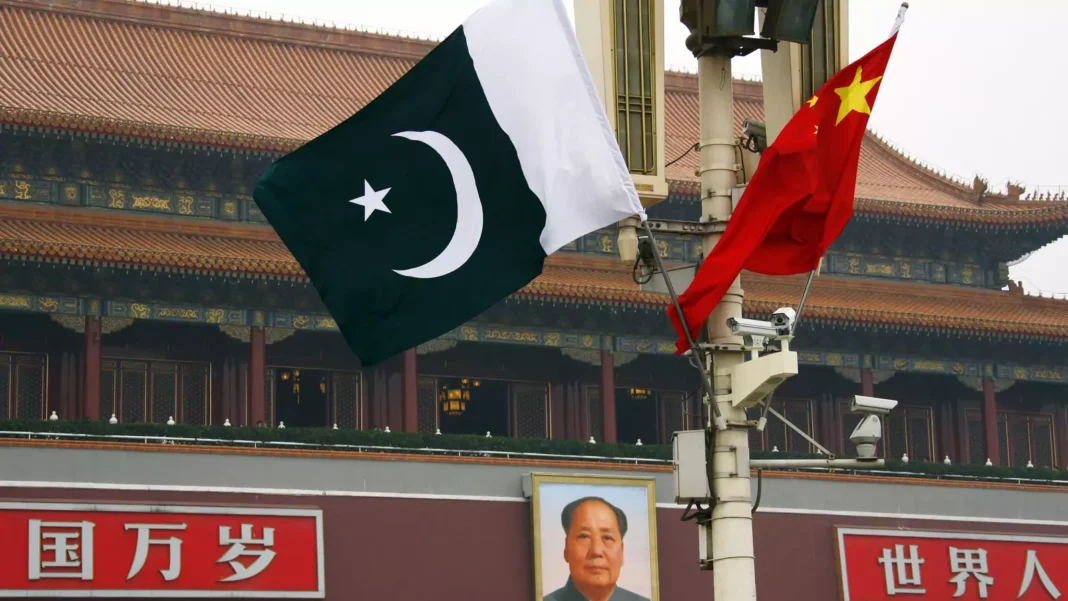Fourteen companies based in Pakistan have been added to the US trade blacklist for contributing to ballistic missile programs of concern, including Pakistan’s missile program, and for involvement in unsafeguarded nuclear activities and two subsidiaries of Chinese genetics company BGI to a trade blacklist over allegations it conducted genetic analysis and surveillance activities which Washington says was used to repress ethnic minorities in China., US official statement said.
The US Commerce Department’s Bureau of Industry and Security (BIS) added 37 entities to its blacklist for allegedly contributing to Russia’s military and defence industrial base, supporting China’s military modernisation, and facilitating or engaging in human rights abuses in Myanmar and in China, the US Department of Commerce official statement said.
“When we act to oppose military aggression in the case of Russia and PRC military modernization, and protect and advance human rights, we are putting our values into action and enhancing our shared security in the process,” said Deputy Secretary of Commerce Don Graves. “We will not hesitate to use the tools at our disposal to achieve those goals.
The list includes a separate category titled, “Ballistic Missile and unsafeguarded Nuclear Activities”.
The statement said that “fourteen entities based in China and Pakistan are added to the Entity List for contributing to ballistic missile programs of concern, including Pakistan’s missile program, and for involvement in unsafeguarded nuclear activities”.
Washington’s move would make it hard for targeted companies to receive US goods’ shipments, the Dawn reported.
“We act to stand against proliferators, oppose military aggression in the case of Russia and China’s military modernisation, and protect and advance human rights,” US Deputy Secretary of Commerce Don Graves said in a statement issued with the list.
“The United States will not allow diversion of peaceful trade in ways that undermine our values and weaken our security. That’s exactly what we are saying today,” added Under Secretary of Commerce for Industry and Security Alan F. Estevez.
We will continue to send the world a simple message—the United States will not allow diversion of peaceful trade in ways that undermine our values and weaken our security. That’s exactly what we are saying today,” said Under Secretary of Commerce for Industry and Security Alan F. Estevez.
“When we identify entities that pose a national security or foreign policy concern for the United States, we add them to the Entity List to ensure we can scrutinize their transactions,” Assistant Secretary Thea D. Rozman Kendler.
“In addition to screening against the Entity List, exporters and those transacting in items subject to our regulations need to exercise careful due diligence to determine whether such items may be diverted to prohibited end-uses or end-users.”
“We cannot allow our adversaries to misuse and abuse technology to commit human rights abuses and other acts of oppression,” said Assistant Secretary of Commerce for Export Enforcement Matthew S. Axelrod. “That’s why we’re committed to preventing bad actors from siphoning off our technology. We will take an all-tools approach to combat this threat, including through the actions announced today and the newly-formed Disruptive Technology Protection Strike Force.”
As per the report by the Dawn, 18 entities based in China were added to the list for acquiring or attempting to acquire US origin items in support of China’s military modernisation efforts, and for supplying or attempting to supply a sanctioned entity in Iran.
Six entities based in China and Myanmar were added for violations of human rights.
The statement claimed that Chinese entities had engaged in the collection and analysis of genetic data, which posed a significant risk of contributing to monitoring and surveillance by the Chinese government, including the targeting, detainment, and repression of ethnic minorities in China as well as diversion of such information to the Chinese military programmes.
The Myanmar’s entities provided surveillance equipment and services to Myanmar’s military regime, enabling it to carry out human rights abuses through the trafficking and identification of individuals, and the military’s continued repression of Myanmar’s people, including through surveillance and imprisonment.
The list includes units of Chinese genetics company BGI and Chinese cloud computing firm Inspur. BGI Research and BGI Tech Solutions (Hong Kong) were added over allegations that the units pose a “significant risk” to contributing to Chinese government surveillance. BGI’s forensics subsidiary, Forensics Genomics International, was also listed, the Dawn reported.
The US media, while reporting the listings, noted that the move would make it hard for targeted companies to receive shipments of US goods from American and other suppliers.
The media predicted that the move would further ratchet up Washington’s tensions with Beijing who have been locked in a technology war for years.
Tensions between the United States and China have been especially high since the Biden administration last month shot down a suspected Chinese spy balloon that had crossed a broad swath of the United States, the reports added.

